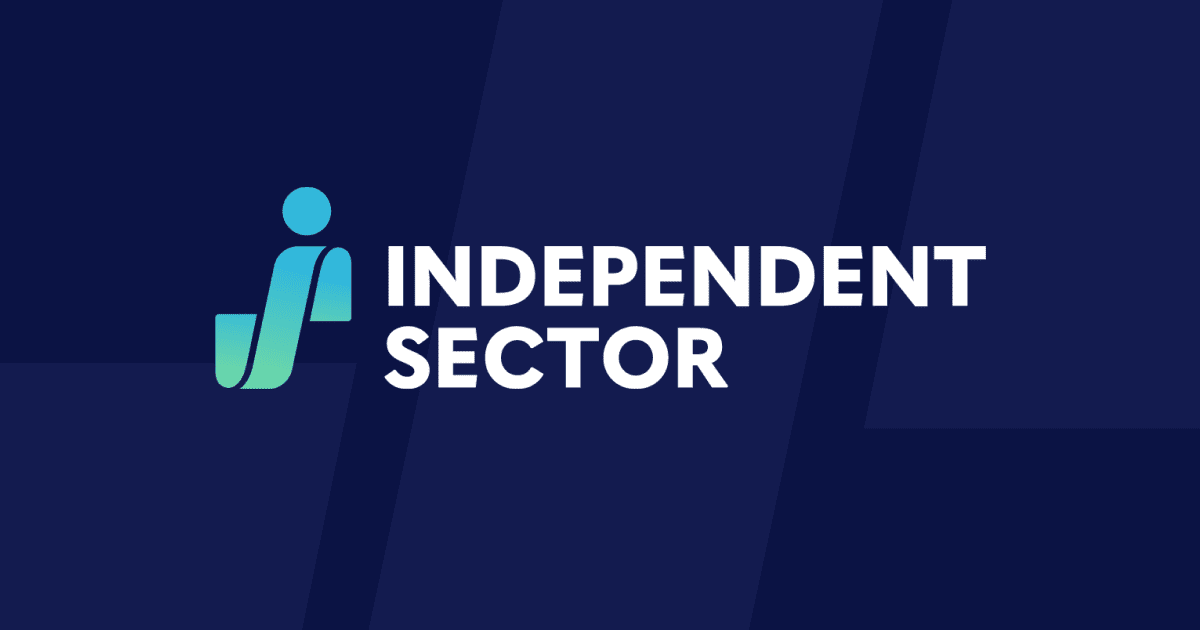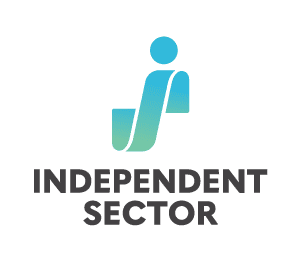In the last few months, four of Independent Sector’s members announced rebranding of their organizations. One such announcement came from United Philanthropy Forum, (formerly known as the Forum of Regional Associations of Grantmakers). To share more about their brand refresh, and help us understand what a spate of rebrands might signal for the sector at large, we spoke with United Philanthropy Forum’s President and CEO, David Biemesderfer.
JB: Most basically, why rebrand?

David Biemesderfer, President & CEO, United Philanthropy Forum
DB: The road to our new name started in early 2015, when the Forum’s board of directors spent seven months engaging in deep strategic discussions about the organization’s role in the philanthropy field. The board knew that a lot had changed in philanthropy and the country since the Forum was founded in 1998 as a support organization and network for regional associations of grantmakers, and that there seemed to be a lot of philanthropy infrastructure organizations out there. The board asked, what role, if any, the Forum should be playing today? What was the unique contribution that the Forum could offer to advance philanthropy in our country?
Our board members spent several months talking to leaders of our member organizations, national philanthropy affinity groups, current and past funders, and other partners. We heard two things quite consistently. First, national affinity groups told us that they didn’t have a network like the Forum to support their work and connect with their peers, and that they would value such a network. I recall a CEO of a national affinity group telling me that when she started her new job a number of years ago she was on her own to figure out who to work with in the field and who her peers were. She described a somewhat lonely experience. I contrast that with the CEO of a national affinity group who told me how welcomed and connected she felt by the Forum when she started her job last year, when we had already started to reach out intentionally to all national affinity groups.
The second thing we heard, quite consistently, is that leaders of regional and national philanthropy-serving organizations (or PSOs, which is our new term for all groups that support, inform, and advance philanthropy) agreed that they were not working together as effectively and efficiently as they could be, or should be, to advance philanthropy’s impact in our communities. In addition to the Forum’s 33 regional PSO members, there are about 60 national PSOs that are either issue-focused, identity-focused, or practice-focused. We tapped into a feeling among many leaders of these groups that philanthropy was not moving the needle enough in their area of focus. Not coincidentally, many of these groups were also in the process of re-examining their purpose and mission. “We’re all floating in our own orbits right now,” one national PSO leader lamented to me, “and that has to change.”
So the Forum spent the next 18 months working closely with regional and national PSOs to co-create a new type of philanthropic network that would be the place where philanthropy’s infrastructure comes together. A network that would integrate regional PSOs’ deep regional roots and connections with national PSOs’ deep content knowledge and reach in a more comprehensive and strategic way. In January 2017 we opened up Forum membership to national PSOs, and to date we have welcomed 28 new members –nearly doubling our membership in just seven months. We are in the process of adapting, enhancing, and expanding our services and programs to reflect our new and growing network, as well as changing our staffing, governance, and internal operations.
This transformation of our organization – with a new vision, a new membership structure, and a new way of working in the philanthropy – required us to change our name. Simply put, our previous name no longer reflected the new organization that we have become. Keeping the old name was not an option.
That brings us to United Philanthropy Forum, a new name that reflects both the new organization that we’ve become today and our aspirations for the future. Our new organization is:
- Working to create a more united philanthropy field, bringing together regional and national PSOs in a single network.
- Helping all PSOs work together better and smarter to advance, inform, and support philanthropy.
- A place to gather, discuss, interact, and lead on critical issues—in other words a forum (and you can still call us the Forum!).
JB: When and where did the rebrand process begin? Did any external or internal factors expedite or delay the process?
DB: We officially kicked off the rebranding process with an outside branding firm in late October 2016, and revealed our new name and brand identity on July 18, 2017 at our annual conference, so the process took a little over eight months. Our goal had always been to reveal our new name and brand at our 2017 annual conference, and we were able to stick to that timetable.
JB: Do you think the season of rebranding is a trend unique to DC-based groups? What, if anything, do you think a rebrand might signal for the broader sector we work in?
In times of great change like we are seeing now in the field, organizations that are dynamic will feel the need to enliven their work to meet the current challenges, and sometimes that means also a brand change to reflect the new work. I do not think responding to trends or seasons is the reason to rebrand. It is all about the relevance of your mission and organization and whether or not your brand reflects the true nature and mission of your organization. If in fact there is an uptick in rebranding for organizations in the sector, I hope it is in response to the changing landscape and our proactive response to transform our organizations to meet new challenges.
DB: When we were engaged in our strategic discussions in 2015 that led to our new vision and, ultimately, our new name, we discovered that many other PSOswere also in the process of re-examining their purpose and mission. So I think that some of the trends that we’re seeing with rebranding in our field might be related to regional and national PSOs engaging in serious strategic discussions about their reason for existing, in this particular moment in time in our country. I don’t think this is specific to DC-based groups. There are also some regional and national PSOs not based in DC that have gone through rebranding efforts in the past few years.



